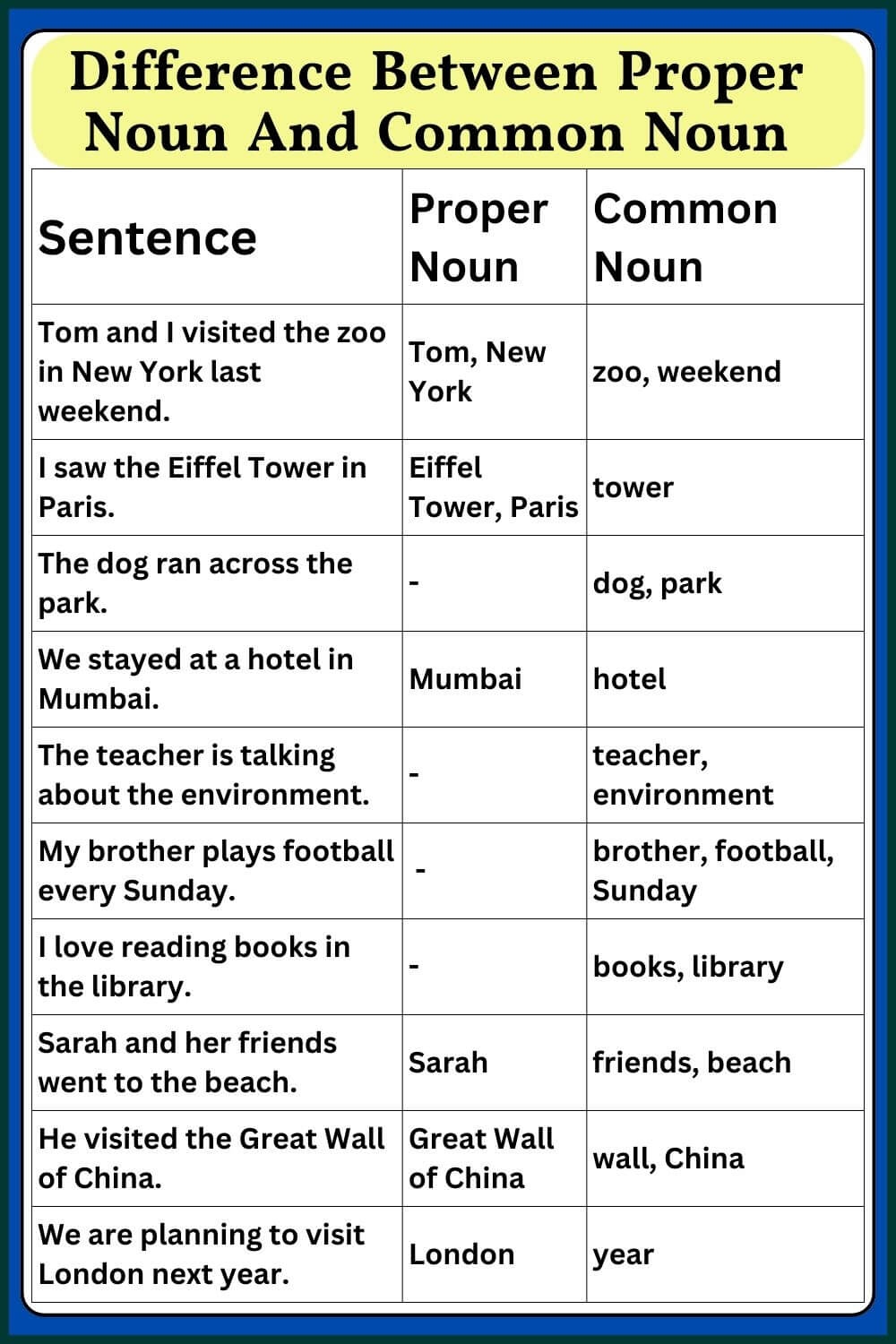When it comes to language and grammar, understanding the difference between proper names and nouns is essential. Proper names and nouns are both types of words that refer to people, places, things, or ideas, but they are used in different ways. Knowing when to use a proper name versus a common noun can help improve your writing and communication skills.
Proper names are specific names used to identify individual people, places, or things. They are always capitalized, regardless of where they appear in a sentence. For example, “John,” “Paris,” and “Mount Everest” are all proper names. Proper names are unique and refer to a specific entity. They are used to distinguish one person, place, or thing from others of the same type.
Proper Name vs Noun
Nouns, on the other hand, are words used to refer to people, places, things, or ideas in a general sense. Nouns can be common or proper. Common nouns are general names for people, places, things, or ideas and are not capitalized unless they appear at the beginning of a sentence. For example, “dog,” “city,” and “mountain” are all common nouns. Common nouns are not specific and can refer to any member of a group.
Using proper names and nouns correctly is important for clarity and precision in writing. When referring to a specific person, place, or thing, it is necessary to use a proper name. This helps to avoid confusion and ensures that the reader understands exactly who or what is being discussed. On the other hand, when talking about a general person, place, thing, or idea, a common noun is sufficient.
In conclusion, proper names and nouns serve different purposes in language and grammar. Proper names are specific names that refer to individual people, places, or things and are always capitalized. Nouns, on the other hand, are general words that refer to people, places, things, or ideas in a broader sense. Understanding the difference between proper names and nouns can help improve your writing skills and enhance your communication abilities.
Next time you sit down to write, pay attention to whether you are using a proper name or a noun. By using the correct word for the situation, you can ensure that your writing is clear, concise, and effective.
